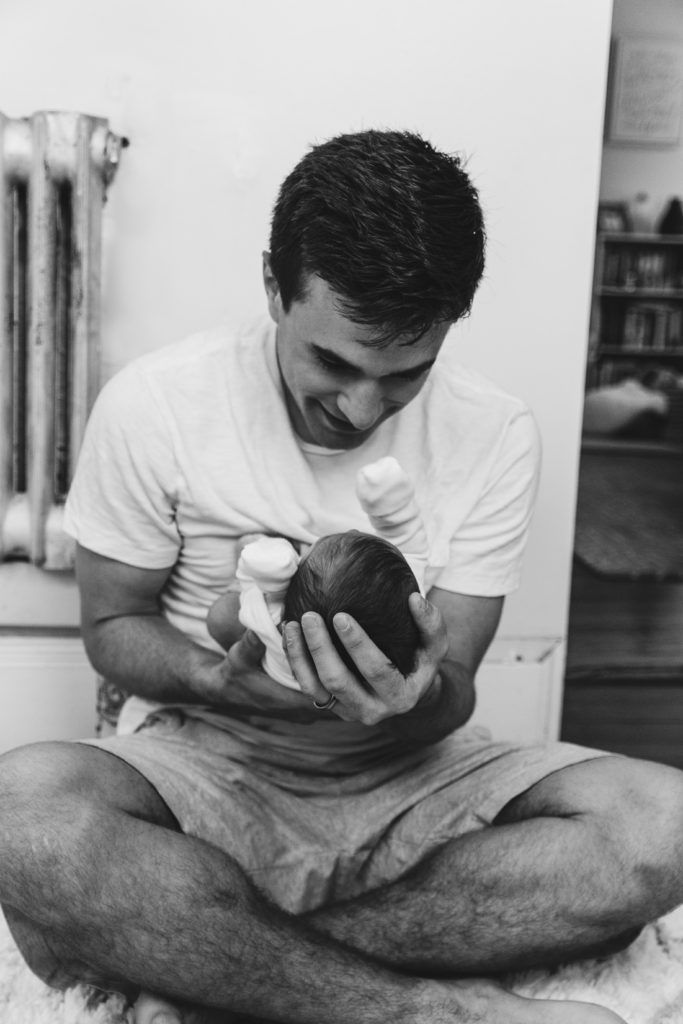The ABC's of Newborn Care | Newborn Breathing
- The Jacksonville Baby Company
- Sep 12, 2019
- 4 min read
Updated: May 5, 2024

The ABC's of Newborn Care | B is for Breathing
As Jacksonville's trusted newborn and postpartum support professionals we get asked a ton of questions! So, we will break all these newborn questions down into a blog series called, The ABC's of Newborn Care to make it super duper easy. We want to help you learn about caring for your little one!
First up in the ABC's of Newborn Care Series is B is for Breathing
Babies can make some unusual breathing sounds!
These sounds can be adorably cute. Sure, they can also be slightly weird. Most of the time though these sounds are completely normal. Newborns can breathe fast or take long pauses between breaths. Often newborns still have amniotic fluid in their airways and it needs a little more time to clear it. This is typical of any baby, but more pronounced sometimes in babies born via cesarean. As a new parent, the breathing sounds your baby makes can be alarming.
Become familiar with what's normal and what's not.
30-60 breaths per minute, slowing down to approximately 20 breaths per minute when they sleep is normal. Adults breathe an average of 12-20 breaths per minute. Kind of a big difference there, huh? Newborns can breathe fast several times and then stop breathing for 5-10 seconds (but no more than that) and then breathe again. If you see breathing at a rate of over 60 breaths per minute it's time to have them checked out! No waiting!
What's with the whistle kid?
While some whistling of the airway can be normal, it might also mean there's mucus in the nasal passages that just may clear up when it’s suctioned out. You should learn to effectively clear your baby's nasal passages of mucus via suction. A saline solution and bulb syringe or Nose Frida can help with this. Another tip is cupping the hand while "burping" your baby. You're just patting their back with your hand cupped, daddies are usually really good at this! Wheezing could also be a sign of blockage or narrowing of the lower airways. Contact your pediatrician and have it checked out if it doesn't clear up with rinsing and suctioning of the nasal passages.
I'm pretty sure my human baby shouldn't bark, what gives?
A barking cough could be a sign of croup, croup is almost always worse at night. This barking cough sound could also be caused by a windpipe blockage, for that reason if you aren't sure what it is you need to have them seen right away. I can NOT stress to you enough how important it is to get trained and certified in adult, child, and infant CPR and first aid. Everyone who will be responsible for caring for your baby should also have this knowledge and feel comfortable using it if needed. Don't wait it could be too late!
My newborn is sneezing, does that mean it's allergies?
Sneezing is trickier. Newborns do sneeze and it can be completely normal. When accompanied by a runny nose or cough it's worth keeping an eye on and using a saline nasal spray or drops and a suction device to clear. If it doesn't improve, the runny nose changes from clear to white, yellow, or green then you should definitely put a call into their pediatric office!
This isn't what they mean by baby blues.
Blue or darkening of the skin is probably one of the most telling signs that your baby isn't getting enough oxygen. In the first few days of life, your baby's most vital organs are getting oxygenated blood first. Their hands and feet may appear less pink in appearance than the rest of her body. Notice this, recognize this, and seek medical attention right away if something doesn't seem right to you. Do not ignore this, and if you see blue coloring of the lips or nose or both you should call 911 right away.
Are you noticing an obvious struggle?
Two more telltale signs that something is not right are chest retraction, your baby's chest sinks deeply with each breath and stridor, an inspiratory sound heard in the upper airway. These things mean your baby is working too hard to get air into their lungs. These are definite reasons to have them checked out.
Accompanied by other things!
If your baby has a fever, vomiting, yellow or green discharge, or is lethargic along with any of the above-mentioned signs you should have them checked out right away. Please note that a fever in a baby younger than 3 months old is a rectal temperature of 100.4°F (38°C) or higher.
In this installment of The ABC's of Newborn Care we hope you're take away is this:
You know your baby best! You are the most invested in him, her, or them! If something doesn't feel or look right it is always best to have it checked out. Second opinions aren't a bad thing. Become familiar with your baby's normal, learn about what is "normal" for a newborn in general, and get CPR and 1st aid certified!




Comments